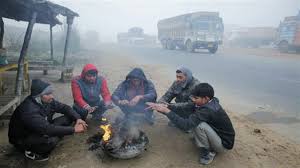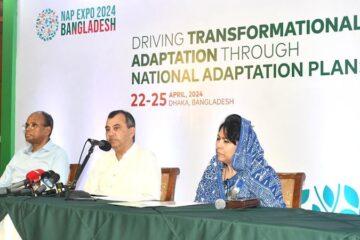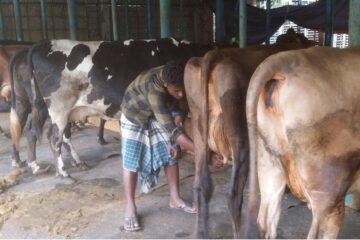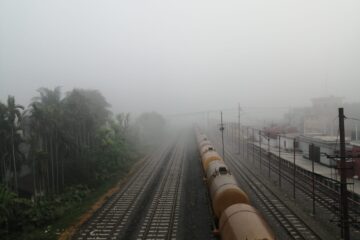PABNA, Jan 04: – Pabna district has experienced its lowest temperature ever. According to sources, Pabna is at 9.6 degrees Celsius, which is the first time this has happened in Pabna.
The biting cold wave which is sweeping with dense fog almost over the northern of the country for three days paralyzed normal life, especially hitting hard the poorer sections of people.
The cold is felt severely as it is accompanied by chilly wind and dense fog, said a meteorologist of Bangladesh Meteorological Department of Iswardi of Pabna district.
People living in open and public spaces like bus and railway stations, and daily laborers and slum-dwellers are most vulnerable to cold waves as they cannot afford warm clothes.
However, the overall temperature may slightly rise from today and will last for 3-4 days, said the official, adding another spell of the cold wave may sweep through the country at that time.
The cold spell has triggered cold-related diseases including pneumonia, asthma, and respiratory complications in the northern districts.
Hospital sources informed a total of 104 child patients we admitted to Pabna General Hospital in different cold-related diseases.
On the other hand, child specialist Dr. Nishit Kumar Kundu said now most patients admitted related to diarrhea diseases and other diseases like cold-related diseases have marked a sharp rise in hospitals and also in different chambers of health practitioners.
The country experienced the lowest temperature of this winter season on Thursday night as mercury fell to 10.5 degrees Celsius in Ishwardi.
Farm laborers, day laborers, rickshaw peddlers, and people of low-income groups who mainly work outside their houses were compelled to leave their work because of extreme cold.
The dense fog has also disrupted road and revering communications for the last few days.
ferry services and plying of water vessels from 11:00 am due to blurred visibility due to thick fog.
Extreme cold and lack of sunlight are likely to hamper the natural growth of crops, including Boro (winter variety) seedlings.
Failure of cash crops may result in the unemployment of agro-laborers and investment of sharecroppers and induce poverty of marginal farmers.
Azghar Ali, a rickshaw puller in the district town, said: “People are avoiding going to markets in the fog and cold. Besides it is getting difficult to pull a rickshaw out in this weather.”
Furthermore, some social and non-governmental organizations (NGOs) have also been distributing blankets among the cold-hit people of the country.
N/M




